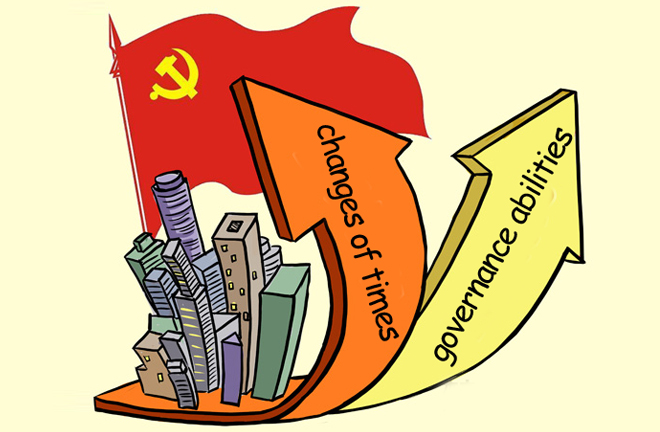Report: Innovation vital to modern governance

Charity law provides legal basis for charitable activities such as poverty relief.
A recent annual report reviewed the innovation of Chinese governance in 2015 and pointed out the major challenges the nation faces in its pursuit of modern governance.
The report was released at a press conference hosted by the National Academy of Development and Strategy at Renmin University of China on March 28. It said China is facing challenges in terms of translating governance concepts into policies, adapting to problems brought by supply-side reform, formulating new incentive mechanisms and prioritizing agendas related to people’s standard of living. The report includes five parts: party governance, administrative governance, rule of law, social governance and governance challenges.
Yang Guangbin, deputy director of the National Academy of Development and Strategy, said studies on governance abilities should pay attention to institutional elasticity, integration of systems, and executive capabilities.
Innovation has become the key word and typical characteristic of modern governance, said Qi Fanhua, a professor from the School of Public Administration and Policy at Renmin University, adding that innovation here refers to the major measures that the government adopted in 2015 and had not taken before.
Qi pointed out that innovation in party governance is most important of all. It is imperative to further develop the concepts guiding governance reform, and corruption must be curbed to cultivate a disciplined, clean political environment, he said.
In this respect, the report suggested streamlining administration and delegating power to the lower levels while reforming the administrative approval system and using negative lists and power lists.
Also, the government should encourage entrepreneurship and innovation to push forward economic restructuring. Moreover, the report recommended supply-side approaches, reform of state-owned enterprises and strengthening international cooperation through the “Belt and Road” initiative and the Asian Infrastructure Investment Bank in order to boost domestic economic growth.
In particular, the report warned against making these concepts empty slogans. It argued that they need to be translated into specific policies in line with social needs as quickly as possible to deal with future governance challenges.
When it was launched in 2015, the annual report was the first white paper on innovation of state governance in China.
Niu Dongjie is a reporter at the Chinese Social Sciences Today.

 PRINT
PRINT CLOSE
CLOSE